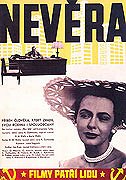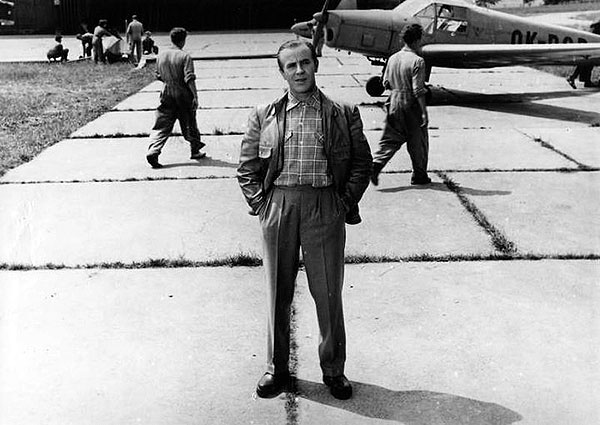Réalisation:
K. M. WallóPhotographie:
Julius VegrichtMusique:
Jan KaprActeurs·trices:
Gustav Nezval, Gustáv Valach, Marie Vášová, Martin Růžek, Irena Kačírková, Bedřich Prokoš, Oldřich Lukeš, Eva Klenová, Eva Klepáčová (plus)Résumés(1)
One month after the end of the Second World War, in place of the former director - a Nazi henchman - the former worker Josef Lang is appointed national administrator of the Baťa factories in Zlín. The inexperienced man gratefully accepts an assistance from the clerk Andrle and makes him his secretary. The fawning Andrle worms his way into the Communist party and soon starts wielding his power over Lang. He deliberately causes confusion and discontent in the factory. Lang loses his friends and, on the advice of his secretary, he transfers the capable foreman Pazdera, otherwise a great critic of his, to the post of director of a filial plant. Lang becomes distanced from the workers and a relationship with Andrle's beautiful wife Sylvie destroys his hitherto good marriage. The airport steward Korvas cannot bear new pilots who are usually working class and he deliberately causes an accident during which the young pilot Opiján is killed. Lang allows himself to be bribed with a new car and signs a disadvantageous foreign commission in the company's name. After a review from the Ministry of Finance, Andrle, Korvas and others are arrested. Lang's wife Evka leaves him. Pazdera becomes the new director. (texte officiel du distributeur)
(plus)Critiques (1)
This film does not have an ideal title. In its final form, Infidelity is only a partial storyline that, along with other indicators, is the driving force behind the destruction of one unscrupulous blue-collar boss... He is played seriously and without hesitation by Gustav Nezval. He is opposed by the always decadent Marie Vášová, the fashionable Irena Kačírková, the oily Eduard Dubský, and last but not least Martin Růžek. In fact, Růžek stole almost the entire film for himself in the role of the reciprocal Vilém Andrl and it is literally a joy to watch his transformations, which become the best part of the whole project. Unfortunately, the rest of the ensemble is made up of bland personalities, unlike in Giant Shoe-Factory, where each character is rendered properly in the bold contours of a black-and-white vision of the pre-war world. Here I only suspect something about the inner world of Lang's wife Eva, played by Eva Klenová, who just stands next to Nezval's unfaithful husband. It is also not worth talking about Eva Klepáčová and Svatopluk Matyáš, who play model factory workers, and therefore have all the prerequisites for flowery young love, which is there above all to strengthen the work ethic. However, this is rather effectively undermined by the archival film The Song of a Great Love borrowed by Dagmar Pistorová... When further compared to Giant Shoe-Factory, Infidelity is a more restrained film, more charged with the problems of the contemporary world of the time. True, I would have expected a more optimistic outlook, but if I want miracles one month after the May Revolution, I would be asking too much. Of course, as a viewer in 1956, I would probably have had a minor frustration because at that time I would have been fully entitled to the fruits of the work of the second generation, which no longer had reason to fumble and wander. Walló's direction is once again skillful but not dazzling; better is Kapr's music, which had several opportunities to engage the audience. Of the ideas of cinematographer Julius Vegricht, I appreciate only the final departure of the decimated boss.
()

